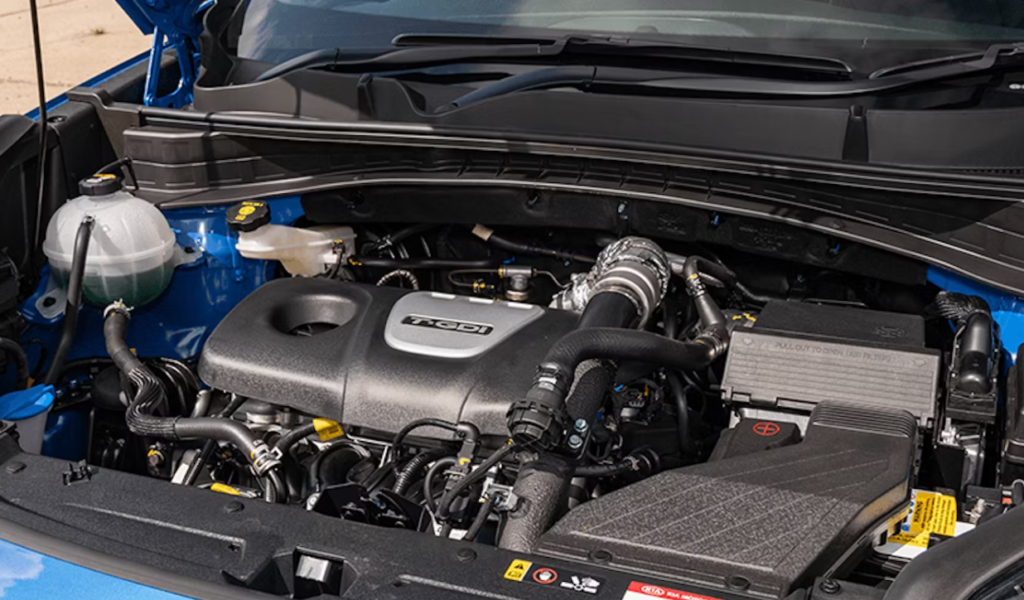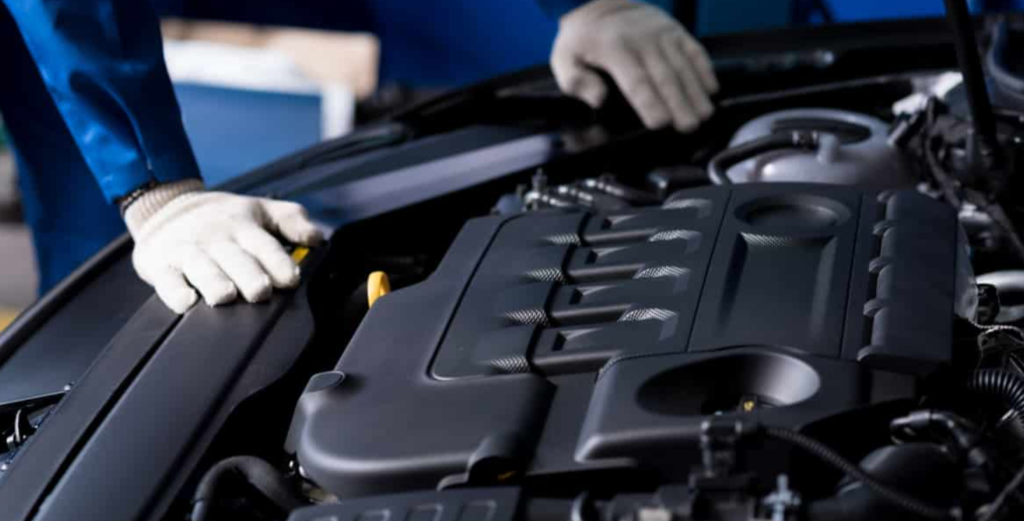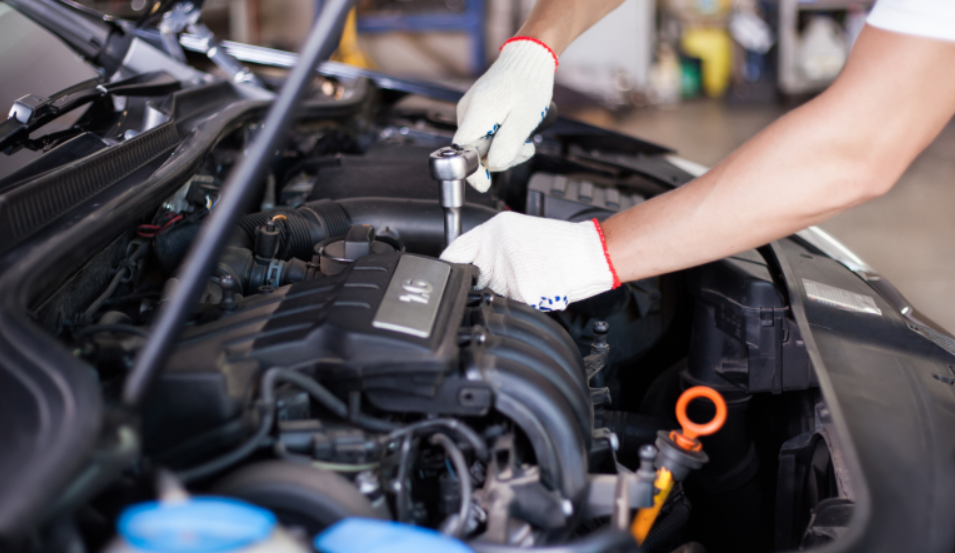Car maintenance can be a complex domain, filled with terms and issues that may sound alien to many. Among these terms, the notorious ‘tappet noise’ stands out, often puzzling vehicle owners. Learn how to stop noisy tappets and dive into the mechanics and intricacies of tappets, ensuring that you can confidently approach this common vehicular hiccup.

Tappets, also known as cam followers or lifters, play a pivotal role in the functioning of an internal combustion engine. They ride on the camshaft’s lobes and help in opening and closing the engine’s valves. This ensures that fuel and air mixture enter the combustion chamber and that exhaust gases are appropriately expelled. A smooth tappet operation is critical for the engine to maintain its rhythm and performance.
What Causes Noisy Tappets?
The question of how to stop noisy tappets stems from understanding their root causes. Noisy tappets can be attributed to several reasons:
- Wear and Tear: Over time, the constant motion can cause tappets to wear down, leading to increased clearances and, consequently, noise.
- Lack of Lubrication: Insufficient oil or using low-quality oil can cause the tappets to make noise due to increased friction.
- Deposits: Over time, sludge or deposits can build up on tappets, affecting their smooth operation and causing noise.
- Incorrect Adjustments: Especially in the case of mechanical tappets, incorrect adjustments can lead to noise.
The Mechanics of Tappets
The Anatomy of a Tappet
A tappet typically consists of a cylindrical body that can move up and down in its bore. One end is in contact with the camshaft lobe, while the other end pushes against a pushrod, valve stem, or directly against a rocker arm. The tappet’s design ensures that it can transfer the camshaft’s rotational motion into vertical motion to operate the engine’s valves.
Hydraulic vs. Mechanical Tappets
How to stop noisy tappets also requires a basic grasp of the two main types of tappets:
- Hydraulic Tappets: These are self-adjusting tappets filled with oil. They automatically compensate for changes in valve and pushrod lengths due to engine operations, reducing the need for periodic adjustments.
- Mechanical Tappets: These require manual adjustment to maintain the correct clearance between the camshaft and the tappet. They’re known for their precision but can become noisy if not adjusted properly.
Recognizing Tappet Noise
Distinctive Sounds of Tappet Noise
The key to addressing and understanding how to stop noisy tappets is recognizing the unique sound they produce. A noisy tappet often produces a consistent and rhythmic tapping or ticking noise, which is most pronounced during a cold start and might decrease as the engine warms up.
Common Misconceptions and Other Sounds
Many sounds emanate from an engine, and it’s essential to differentiate tappet noise from others. For instance:
- Knocking Sounds: These are deeper and are often related to issues with the pistons or crankshaft, not the tappets.
- Squealing: This is usually associated with belts or pulleys and is distinctly different from the tapping of tappets.
Addressing how to stop noisy tappets starts with a thorough understanding of their function, mechanics, and the distinctive noises they produce. Regular maintenance, quality lubrication, and timely adjustments (especially for mechanical tappets) are essential steps in silencing the unwelcome clatter of noisy tappets.

The Underlying Causes of Noisy Tappets
If your vehicle’s engine has begun to sound more like a tap dance routine than a well-oiled machine, then the tappets might be the culprits. A commonly faced issue by many vehicle owners is the unnerving noise produced by these tappets. The key to understanding how to stop noisy tappets lies in comprehending the reasons behind their ruckus.
Wear and Tear Over Time
Much like any other component of a vehicle, tappets aren’t immune to the ravages of time. Continuous operation and the thousands of revolutions they make can cause wear and tear. This deterioration can lead to increased clearances or even physical damage to the tappet itself, resulting in that characteristic tapping noise. How to stop noisy tappets often starts with addressing this inevitable wear.
Oil Starvation or Low Oil Pressure
Oil serves as the lifeblood of an engine, providing the necessary lubrication to ensure all parts move smoothly. If there’s an issue with the oil supply, tappets can quickly become noisy. Low oil pressure or oil starvation means that the tappets aren’t receiving the lubrication they require. The resultant friction is a significant factor in producing the bothersome noise.
Accumulation of Dirt and Deposits
As oil circulates through the engine, it can pick up dirt, debris, and other contaminants. Over time, these can accumulate around the tappets, affecting their smooth movement and causing noise. Learning how to stop noisy tappets often means addressing this dirty problem at its core.
Incorrect Valve Clearances
Especially relevant for mechanical tappets, incorrect valve clearances can be a significant source of noise. If the clearances are too large due to improper adjustment or component wear, the tappet will make a tapping noise as it strikes. Conversely, if the clearance is too small, it can cause other issues like poor valve operation.
Immediate Steps to Take
Upon recognizing the dreaded tappet noise, some immediate actions can help diagnose and potentially mitigate the problem.
Check Oil Levels
The first step in determining how to stop noisy tappets is to check the engine oil. Ensure that the oil is at the recommended level and isn’t overly dirty. Low or dirty oil can be a primary reason for tappet noise.
Listening for Intensity and Frequency of Noise
By closely listening, you can often gauge the severity of the issue. If the noise is sporadic or only present during cold starts, it might be a minor issue. However, if the noise is constant and grows in intensity with acceleration, it might indicate more significant concerns.
Quick Fixes for Noisy Tappets
While a professional mechanic’s insight is invaluable, there are some quick fixes one can consider if they’re pondering how to stop noisy tappets.
Using Oil Additives
There are numerous oil additives available that claim to quieten noisy tappets. These products can provide the extra lubrication needed to reduce tappet noise and can be an effective short-term solution. However, it’s essential to choose a reputable product and ensure it’s compatible with your engine.
Adjusting Valve Clearances
For those with mechanical tappets, adjusting the valve clearances can often solve the problem. This process involves manually setting the gap between the tappet and the valve to the manufacturer’s specification. It can be a bit technical, so it might be best left to professionals unless you’re comfortable with engine mechanics.
Flushing the Engine
An engine flush can help clear out the accumulated dirt and deposits that might be causing tappet noise. By using a quality engine flush additive, followed by draining the old oil and refilling with fresh oil, you can often reduce or eliminate tappet noise.
Understanding how to stop noisy tappets is a blend of knowledge and action. Recognizing the causes and implementing both immediate and long-term solutions will ensure that your engine runs smoothly, free from the unnerving tap dance of noisy tappets.
Long-Term Solutions
While quick fixes can offer a temporary reprieve, understanding how to stop noisy tappets for the long haul requires consistent efforts and some fundamental strategies. Let’s delve into the sustainable solutions that can ensure that the clattering sound doesn’t return.
Regular Engine Maintenance
Consistent engine maintenance is paramount. By ensuring all engine components, including the tappets, are in good condition, one can prevent issues from arising. This involves periodic checks and addressing minor concerns before they escalate into major problems. Regular maintenance is a foundational step in the quest for how to stop noisy tappets.
Ensuring Quality of Oil and Filters
Oil is the lubricating agent that ensures smooth operation, but not all oils are made equal. Using a high-quality oil that suits your engine type can substantially reduce the chances of tappet noise. Equally important are the oil filters. A quality filter will ensure that contaminants are effectively removed from the oil, preventing the buildup that can lead to tappet noise.
Periodic Valve Adjustments
For vehicles with mechanical tappets, periodic valve adjustments are crucial. As parts wear down, clearances can change, leading to the unsettling noise. By maintaining the recommended clearances, one can effectively address how to stop noisy tappets.
When to Consult a Professional
The do-it-yourself approach has its merits, but there are moments when professional intervention is the best course of action.

Recognizing When DIY Isn’t Enough
If after all your efforts the tappet noise persists, or if it becomes more pronounced, it may be indicative of a deeper, underlying issue. Recognizing when to step back and seek expert advice is essential.
Finding a Trusted Mechanic
A reliable mechanic can pinpoint the exact cause of the tappet noise and provide effective solutions on how to stop noisy tappets. Seek recommendations, read reviews, and choose a mechanic who has a proven track record with engine-related issues.
Costs Associated with Professional Repairs
Professional intervention comes at a price. Depending on the exact issue, costs can vary. Simple valve adjustments may be relatively inexpensive, while replacing worn-out components can be costlier. Always request a detailed estimate before authorizing repairs.
Preventative Measures
An ounce of prevention is worth a pound of cure, especially when considering how to stop noisy tappets.
Adhering to Oil Change Schedules
Consistently changing the engine oil based on manufacturer recommendations or every 3,000 to 5,000 miles (depending on the type of oil used) can prevent numerous issues, including tappet noise.
Using the Right Grade of Oil
Every engine is designed to operate optimally with a specific oil grade. Ensure you’re using the recommended grade to guarantee optimal lubrication.
Being Aware of Unusual Engine Sounds
Stay alert to changes in your engine’s sounds. Early detection of unusual noises can lead to quicker diagnoses and less expensive repairs. This awareness is vital in understanding how to stop noisy tappets before they become a bigger issue.
Maintaining Optimal Engine Temperatures
Overheating can accelerate wear and tear and lead to multiple engine issues, including tappet noise. Ensure the cooling system is functioning properly and that coolant levels are maintained.
How to stop noisy tappets can be multifaceted, the solutions often lie in proactive measures, timely interventions, and, when necessary, professional consultations. A blend of preventive actions and informed decisions will keep your engine humming smoothly without the disconcerting sounds of noisy tappets.
Summary
The unending quest of vehicle owners on how to stop noisy tappets is testament to the importance of ensuring the smooth operation of an engine. But understanding the ‘why’ behind this noise is just as crucial as knowing the ‘how’ of addressing it.
The Importance of Addressing Tappet Noise
Noisy tappets aren’t just an audible nuisance; they’re often the harbinger of underlying engine issues. Addressing tappet noise promptly ensures that minor concerns don’t evolve into significant, costlier problems. By learning how to stop noisy tappets, you not only guarantee a quieter ride but also prolong the life of your engine.
Benefits of Regular Engine Maintenance
Regular engine check-ups are more than just an annual chore. They are the foundation of preventative care for your vehicle. Through consistent maintenance, potential issues are detected early, ensuring that the query on how to stop noisy tappets is addressed before it even arises. This proactive approach not only saves money in the long run but also ensures optimal engine performance.
Frequently Asked Questions (FAQs)
Engaging with common queries about tappets can offer further clarity. Here are some frequently asked questions on how to stop noisy tappets and their corresponding answers.
How often should valve clearances be checked?
The recommended interval varies based on the vehicle manufacturer and engine type. However, a general guideline is to check valve clearances every 20,000 to 30,000 miles. Always consult your vehicle’s manual for specific recommendations.
Are oil additives safe for all engines?
While many oil additives claim universal compatibility, it’s crucial to choose one that’s appropriate for your engine type. Some modern engines with specific tolerances and materials may not respond well to certain additives. Before using any product, research its compatibility or consult a mechanic.
Can tappet noise lead to engine failure?
In most cases, tappet noise itself won’t cause engine failure. However, if the noise is indicative of a more significant underlying issue, like severe wear and tear or oil starvation, it can lead to broader engine problems. This underscores the importance of addressing how to stop noisy tappets promptly.
How long does it take to adjust tappets?
The time required to adjust tappets can vary. For a professional mechanic, a standard adjustment might take anywhere from 1 to 3 hours, depending on the vehicle’s engine configuration and any complications that might arise.
Are certain vehicles more prone to tappet noise than others?
Yes, older vehicles, especially those with high mileage or those lacking regular maintenance, might be more susceptible. Additionally, vehicles with mechanical tappets might require more frequent adjustments than those with hydraulic tappets.
In conclusion, understanding how to stop noisy tappets is more than just a journey into the intricacies of engine mechanics. It’s about ensuring the longevity and health of your vehicle. Through proactive care, regular check-ups, and addressing concerns head-on, you can enjoy a smooth and noise-free ride for years to come.